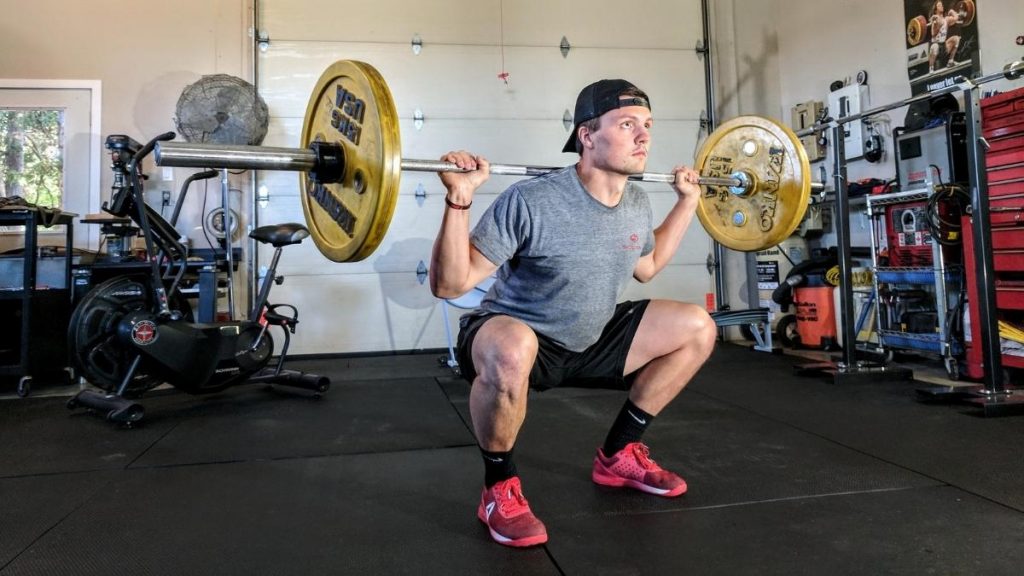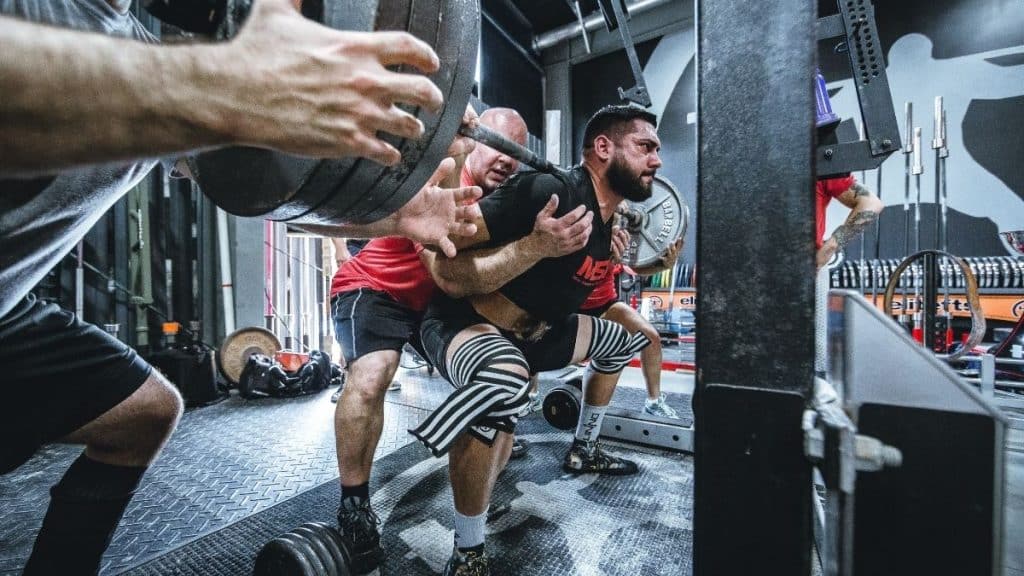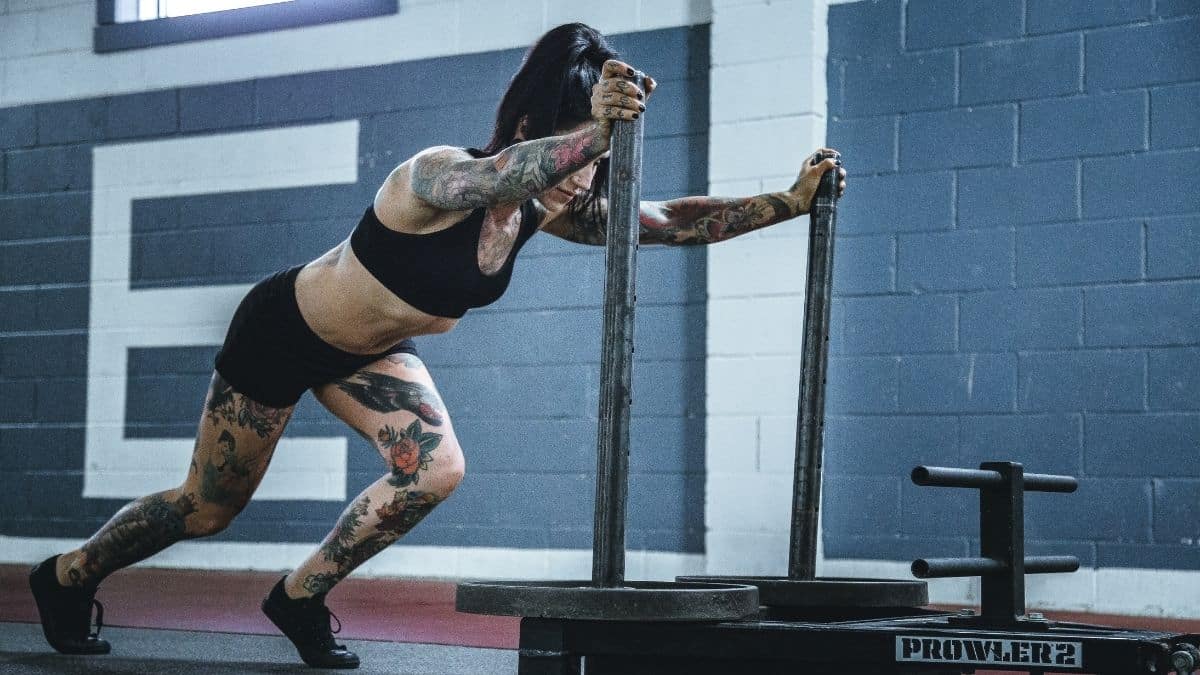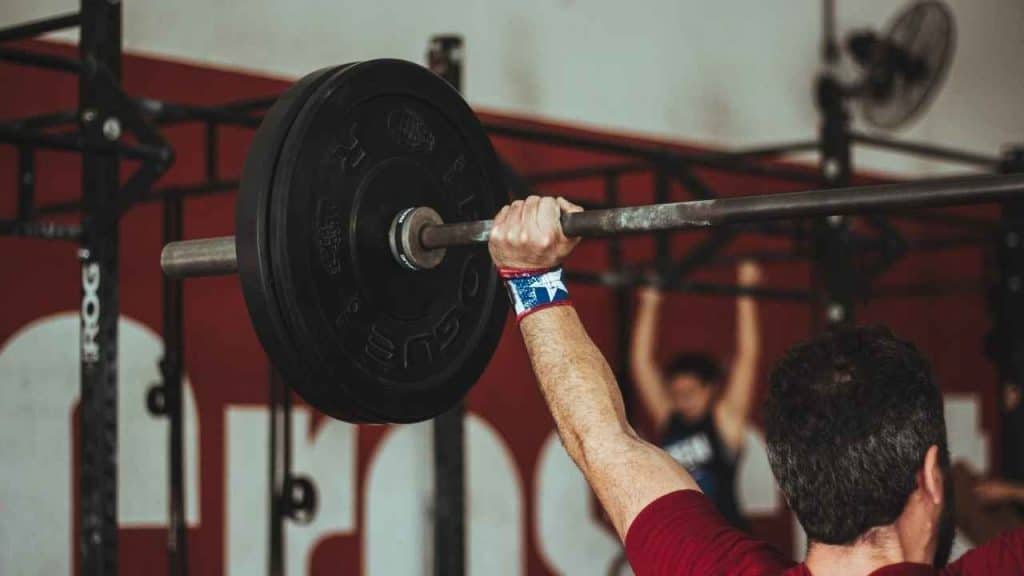If you’ve ever spent time looking up information on how to improve your Muay Thai performance, you’ve likely come across a number of strength and conditioning programs.
With so much conflicting information on strength and conditioning for Muay Thai, fighters are often left confused and looking for answers.
To help clear things up, we’ve put together this guide for you. Below, we’ll go over the vital importance of strength and conditioning for Muay Thai and how to plan an effective program.
Let’s dive in…
The Importance of Strength & Conditioning For Muay Thai
In essence, strength and conditioning is about improving your movement quality and physical fitness.
Strength and conditioning will always require a unique approach depending on your fitness level and goals.
Strength and conditioning is about developing superior movement patterns, keeping yourself safe and free of injuries, improving your balance, using your energy more efficiently and building strength.
With that said, let’s take a look at the top three benefits of strength & conditioning for Muay Thai:
1. Improved Athletic Performance
The primary aim of any strength and conditioning program is to improve athletic performance.
Conditioning work is designed to improve our aerobic capacity, which, in turn, enhances the body’s ability to produce ATP. As a result, our performance improves, and we perform better in Muay Thai fights.
Strength is also vital. Regardless of your expertise and ability, possessing more physical strength will always give you an edge over the competition. For one, you can exert less effort to produce more force. And second, strength offers you the chance to fight more effectively, defend yourself more easily, and land more powerful strikes.
2. Reduced Risk of Injuries
Many injuries occur because of fatigue. Specifically, research finds that fatigue worsens our ability to move safely and effectively, which can place us in a compromised position.
Fatigue also prevents us from defending ourselves effectively, which allows our opponents to overpower us.
Superior strength and conditioning helps prevent injuries by allowing us to maintain good technique and defend ourselves effectively during sparring sessions or fights.
Another key to strength and conditioning training is to examine the athlete thoroughly, understand their movement patterns, learn what their weaknesses are, and teach proper movement.
During the first phase of an effective strength and conditioning program, any muscular imbalances should be addressed.
3. Superior Rehab and Faster Recovery
One of the primary strength and conditioning goals is to improve muscular imbalances to help prevent injuries. Sadly, they sometimes occur, and athletes have to deal with them.
As we briefly discussed above, energy production plays a vital role in our ability to do work and recover well. Good aerobic conditioning allows us to produce more energy, recover quickly, feel less tired, and get the most out of our training.
While research is yet to understand the science behind optimal rehabilitation, fitter people tend to recover from injuries much more quickly.
Strength is also necessary because it would allow the injured person to go through their rehab work more easily and hopefully recover quicker.

Strength & Conditioning Equipment For Muay Thai
Below is a list of strength & conditioning equipment that can help you improve your Muay Thai performance.
- Weight Lifting Belt – RDX Weight Lifting Belt
- Weight Lifting Shoes – Reebok Men’s Lifter PR II
- Kettlebell – TKO Kettlebell
- Resistance Bands – VEICK Resistance Bands
High-quality equipment will help you perform better and reduce the risk of sustaining injuries whilst training.
Strength & Conditioning Tips For Muay Thai
Designing a strength and conditioning program for Muay Thai can be challenging. To help, we’ve put together this list of tips.
1. Pick Your Exercises Wisely
There are many ways to tackle strength and conditioning training for Muay Thai. How a person approaches it will largely depend on their strengths, weaknesses, and goals.
In general, Muay Thai athletes benefit significantly from focusing on core strength exercises coupled with combat specific movements and aerobic conditioning.
With any Muay Thai strength and conditioning program, fighters should aim to achieve maximum results with minimal effort.
A strength and conditioning program for Muay Thai should address muscular imbalances to reduce injuries, increase strength and improve energy efficiency.
2. No Two Programs Are The Same
While it might be tempting to go on Google and find yourself a good strength and conditioning program, don’t. Well, you can, if you’d like, but keep something in mind:
We are all different, and no single program will work equally well for everyone. What might work great for you could be terrible for someone else.
Because of that, you should build yourself a unique program or work with a coach to develop one. Consider your goals, current level, and ability to recover before getting started.
3. Hire a Coach
This point somewhat intertwines with the previous one but is slightly different. Regardless of how skilled a fighter you are, working with an expert or coach will always help you improve and stay safe. The second set of eyes from an expert can reveal possible weaknesses, strengths, and what types of exercises work best for you.
4. Keep Your Recovery On Point
Your training is important because it causes a stimulus and your body then has to adapt to it. For example, the more strength and conditioning work you do, the stronger and more conditioned you can hope to become.
But here is the thing:
Training alone is not everything. Your recovery plays just as big of a role in your ability to train effectively and prosper. Training brings about catabolism – the breakdown of tissues and onset of a depleted state. Thanks to recovery, the body has the chance (and means) to repair the damage and strengthen itself.
The two most important aspects of recovery are good nutrition and adequate sleep. This means eating a calorie-controlled and balanced diet and making sure to get at least seven hours of sleep per night.
Intelligent programming is also an aspect of recovery, but this is a topic for another day.
5. Don’t Overtrain

Strength and conditioning is similar to walking a tightrope. You need to find yourself in the middle between not doing enough and doing too much.
Research finds that the more work we do, the better results we can expect to achieve. This applies to learning new skills, strength training, and more. But there comes the point where doing more doesn’t lead to further improvements. Instead, we find ourselves causing too much damage for the body to repair. We enter a state of overtraining where our efforts don’t reward us but instead push us back.
Overtraining increases the chance of sustaining injuries and will reduce your Muay Thai performance.
So, it’s essential to do just enough work to make progress, but avoid pushing yourself to your limits all of the time.
6. Set Clear Goals
Strength and training is fantastic. But you need to have a specific idea of what you’re working towards. If you don’t, it would be easy to get sidetracked, lose motivation, or train suboptimally.
Setting clear goals allows you to work with a coach to create an effective plan and break your goals into weekly objectives. For instance, are you looking to peak for a fight (i.e., to be in top physical shape for a given date)? Or maybe you want to build strength after competing?
Whatever it is, get clear on that.
7. Think Long Term
It’s easy to get caught up in day-to-day activities. While having your eyes on the few upcoming steps is important, you also need to think long-term. In other words, you need to know what you’re working to achieve this week, month, and training cycle.
For instance, periodization is about manipulating the training variables to keep progressing optimally. In the case of fighting, it’s also about peaking for a fight.
So, it’s essential to work in specific blocks, prioritize different things, and understand where each piece of the puzzle fits.
8. Keep it Simple
Last but not least, keep it simple. After discussing the above seven tips, this one might relieve or puzzle you. Regardless of what you’re thinking right now, you need to focus on simple fundamentals. Don’t try to reinvent the wheel of exercise selection, don’t go for gimmicks, and avoid shiny objects. Instead, do what’s been proven to work.
The simpler your approach, the more effective it will be. Plus, the fewer things you focus on, the more you can improve in each and reap tremendous benefits.
Conclusion
Strength and conditioning offers numerous benefits for Muay Thai fighters including reducing the chance of sustaining injuries, increased strength and improved energy efficiency.
Here is a quick recap of the training tips:
- Pick your exercises carefully and mostly go for core-based activities that offer the greatest bang for your training buck.
- No two programs are the same, so work with a coach to produce something that fits you.
- Don’t forget about your recovery. Your training is essential, but recovery is what allows you to develop positive adaptations from training.
- Avoid doing too much training. Some is good, more can be better, but too much can lead to regression.
- Set clear goals that allow you to create an effective plan and set weekly and monthly objectives.
- Don’t obsess too much over any single workout. Instead, think long-term and see how each piece of the training puzzle fits into the big picture.
- Bet on simpler tactics, training programs, and exercises. In most cases, the more complicated an approach is, the less likely it is to work well.
If you enjoyed our article on strength & conditioning for Muay Thai, share it by hitting the button below.




